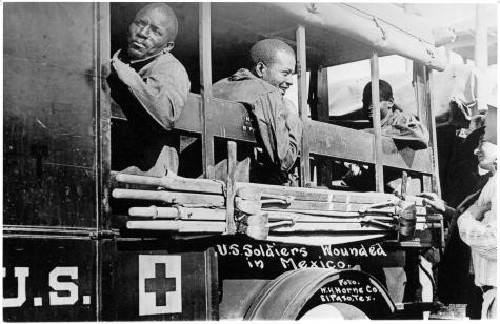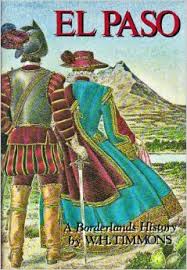Welcome!

Welcome to the El Paso County Historical Society Blog! We will be updating it every-so- often with all things Borderlands history. Whether it is an interesting find, an entry about an event that took place in the Borderland, or general insights into history, you’ll find it here. Please make sure to check with us, and explore what our history still has to offer.
Some Insights into What History Is

As I looked back at my old report cards this past weekend, I saw that I was never a great student in social studies or history. In fact, I hated history until I entered college when I had to take history as an elective because every other class was closed. I probably don’t have to mention that I wasn’t thrilled about this. Nevertheless, it was in college that I discovered what history is and what it shouldn’t be.
History is a study of the past, yes. But at the heart of the study of history is observation and investigation. While many people know history as a subject that entails facts, often obscure names and locations, and dates, many do not understand the research and labor that goes into creating history–writing about it, compiling it, deliberating it, and delivering it to the masses. History begins and ends with observation and investigation.
Many times the construction of history begins with a primary source–a diary entry, a photograph, a map. The item is analyzed and interpreted in context, and then, if called for, another source related to the original one is analyzed and interpreted, and so on. Secondary (books, articles, magazines) and tertiary sources (encyclopedias, atlases) are used to gain insight and to further explain an event. The process is investigatory–historians are investigators. Then the evidence is compiled into a coherent narrative.
I didn’t realize this until I entered college. I didn’t realize how hands on the subject truly is. It was once I was enlightened to all of this, however, that I fell in love with the subject. And what also fascinated me (and still does to this day) is that history is a story, or should I say stories, based on true events. A historian’s job is to observe and investigate and then create a world for others to enter and experience.
This isn’t to say that history is false or that it is meaningless. It does mean, however, that the study of history requires more than memorization of the aforementioned names, dates, locations, and facts. It also means that history is a product of individuals with subjective lenses. There is no such thing as truly objective history because humans are not truly objective. We all have our filters based on deeply rooted ideals. This doesn’t necessarily mean that anyone is wrong, and it doesn’t mean we can’t come up with some coherent version of an event. It just means that a historian’s work doesn’t rely on “objective truth” per se, because if such a thing exists, we humans can not see it. We are left with “subjective truth” and use it to be as objective as possible.
Moreover, just as history sheds light on a past event, it also helps explains the mentality and context of those who record it. Think of Thucydides. His History of the Peloponnesian War is an in-depth characterization of that event. Nevertheless, it is peppered with flair and sensationalism that may not portray what occurred accurately. Does this mean we should disregard it? Heavens, no. If anything, we can gain an insight into the author’s world by examining how he viewed another.
History is a dense subject matter with reaching implications for every other subject. It is engaging, polarizing, and informative. But it also isn’t simply names, dates, and facts. History is all about observation and investigation. I hope that the readers of this blog either appreciate that or will come to do so.
Robert Diaz–Research volunteer at the El Paso County Historical Society
